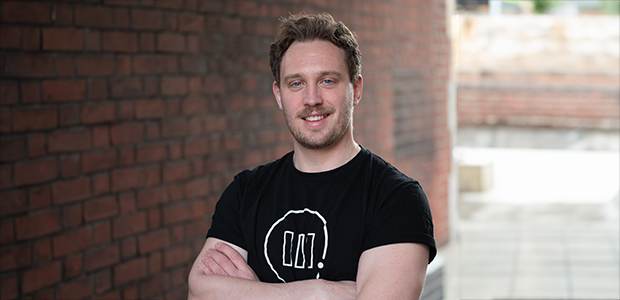
Never change a winning team: considerations for lasting success
When discussing startup success, the conversation often focuses on key ingredients like product strength, market timing, and securing the right investors. While these factors are crucial, there's another often-overlooked element: the power of the team behind the business.
Not just any team, but one that has been through the trenches together, sometimes more than once.
I’ve experienced this firsthand. Before my co-founders – Jason, Bartlomiej, and Ross –and I launched tem., an energy transactions startup revolutionising how energy is bought and sold, we were founding employees at Limejump, another energy company ultimately acquired by Shell.
After that exit, we went our separate ways, but it wasn’t the end for us. We found our way back through another startup venture, convinced that the trust we’d built and the lessons we’d learned were too valuable to leave behind. Our new startup, tem., is built on this foundation, demonstrating how crucial team dynamics are for long-term success.
In the startup world, it’s easy to attribute success to external factors, but the internal dynamics between co-founders can make or break a company. Through shared experiences – both wins and losses – you gain something that no external investment or market timing can provide: an unshakable bond and an intuitive way of working together.
Learning from serial success
From my time at two startups, I’ve learned that losing teaches you more about your teammates than winning ever could. When things go well, flaws can remain hidden, but failure reveals true character. Tough moments strengthen a team.
At Limejump, it was during uncertain times that our trust solidified. It wasn’t just about our accomplishments – it was about how, together, we fell short at times. This history made us confident in our collaboration when founding tem. We’d weathered storms and emerged stronger.
Failing alongside teammates you trust fosters open communication. We knew what we could improve this time and how to handle the inevitable setbacks every startup faces. Our shared understanding of what went wrong at Limejump didn’t lead us to part ways – it motivated us to build something new together.
The power of team chemistry
Working with a team that has experienced highs and lows fosters invaluable chemistry. Trust builds over time through repeated experiences, both good and bad. When you've collaborated in high-pressure environments, you know how each person thinks and reacts, giving you a head start.
Think of it like a long-term relationship: in the early stages, you’re figuring each other out. But after years together, you understand each other’s quirks and can anticipate reactions. This familiarity is an advantage we have as co-founders with a shared history, compared to newly-established teams or solo founders. Having navigated various phases together, we can move faster and make decisions more efficiently because we know each other so well.
This isn’t just blind trust – it’s about combining that trust with complementary skills. A strong team doesn’t think the same way. At tem., our success stems from diverse perspectives. We don’t always agree, but that challenges us and pushes the business forward in ways we couldn’t achieve alone.
That chemistry doesn’t develop overnight. Despite our previous experiences at Limejump, we didn’t rush into co-founding tem. Instead, we took our time to test the waters. For instance, I left my job first to test tem.’s concept., while the others transitioned gradually over six months, working on an initial project and prototype. This approach allowed us to confirm that our working relationship remained strong.
Starting slowly may not align with the typical startup hustle, but it’s essential when you’re about to spend more time with your co-founders than with your family. These are the people who will be in the trenches with you, so it’s vital to align not just on the business idea, but on a broader vision of success.
The value of experience
Experience is often underrated in the fast-paced world of startups, where the mantra ‘move fast and break things’ prevails. However, for us, experience has been a critical asset, especially in fundraising and scaling. Having navigated investor relationships before, we understand the nuances of raising capital, with each funding round teaching us more about the process.
That said, experience doesn’t mean you can coast. Scaling one company successfully doesn’t guarantee you’ll replicate that success. Each business is unique, as is each market. While our past experiences provide valuable lessons, we recognise the need to apply first principles and adapt to new challenges.
The beauty of a shared history with your co-founding team is that you can lean on past experiences while remaining open to learning. You know what worked before, but you also understand that the rules can change. It’s that mix of confidence and adaptability that keeps pushing us forward.

